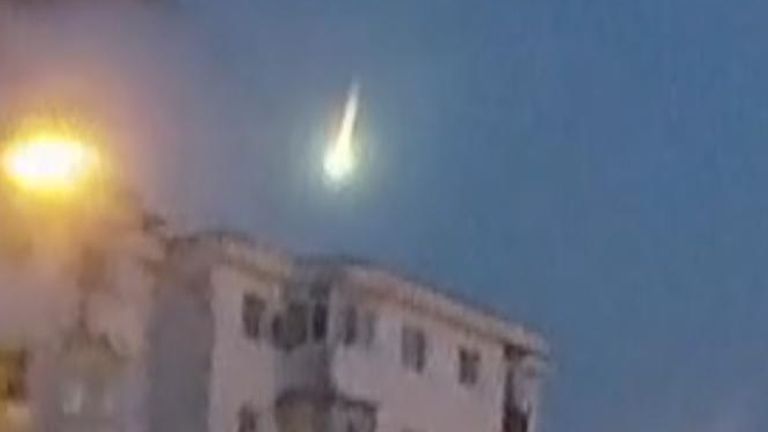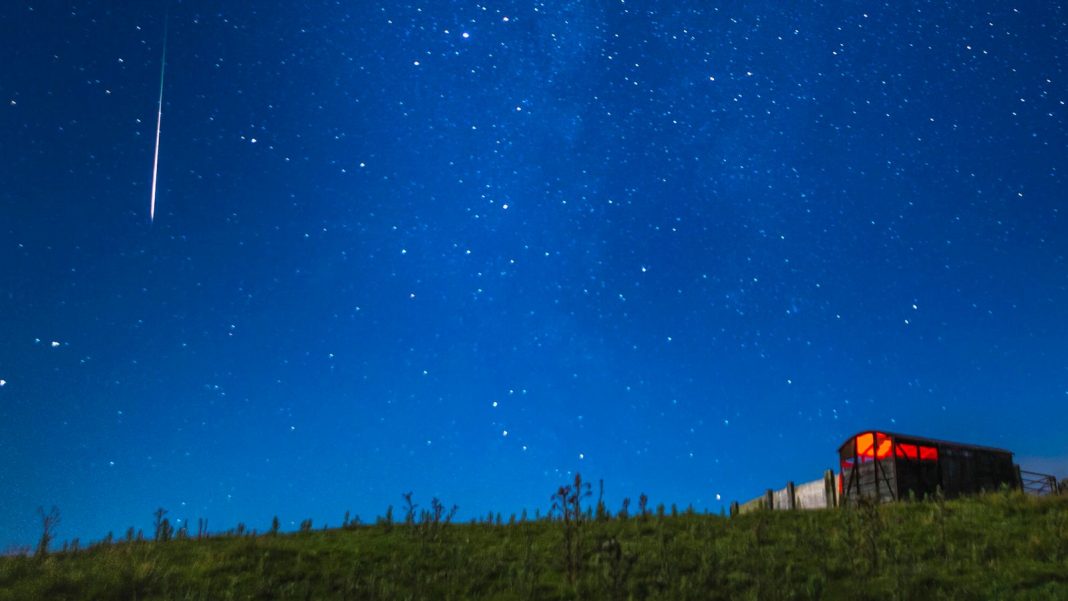We are a couple of weeks into the Perseid meteor shower – but the best is yet to come, offering stargazers a chance to see one of the most dramatic displays of the year.
This year’s event is expected to peak during the night of 12 August, into the early hours of 13 August, with up to 100 shooting stars an hour.
The shower is one of the highlights of the year for enthusiasts because it produces bright meteors and it is one of the most active.
There is also a high chance of seeing fireballs, which are very bright meteors, as well as meteors with long trains.
It is called the Perseids because the meteors seem to originate from the constellation of Perseus.
Why do we see the Perseids?
Even though each meteor is mostly no bigger than a grain of sand, they still produce an eye-catching shooting stream of light in the sky as they burn up upon hitting the atmosphere at about 130,000 mph.
They are produced every year when the Earth ploughs through dusty debris left behind by the comet Swift-Tuttle, and can reach scorching temperatures of between 1,648C (2,998.4F) and 5,537C (9,998.6F).
How can I prepare for watching it?
You can see the Perseid meteor shower best in the northern hemisphere.
Meteor showers are easy to watch and no special equipment is needed, according to the Royal Astronomical Society.
They are best observed with the naked eye, and a reclining chair and a blanket make viewing much more comfortable.
Read more:
Meteor burns through Queensland skies creating a sonic boom
‘Biggest one I’ve seen’: Meteor lights up night sky
Please use Chrome browser for a more accessible video player

0:35
July: Fireball streaks into Romanian mountains
When is the best time to see it?
The radiant of the Perseids is actually always above the horizon as seen from the UK, which means observers should be able to see some meteors as soon as the sun sets.
Experts suggest it is favourable to try to spot meteors when the moon is below the horizon or when it is in its crescent phase, because otherwise it acts as natural light pollution and will prevent the fainter meteors from being visible.
Will it be good stargazing weather?
The question we all ask ourselves in the UK.
Sometimes the weather is not at its best for observing the night sky.
If clouds make viewing impossible on the peak night itself, the shower will continue until 24 August.







